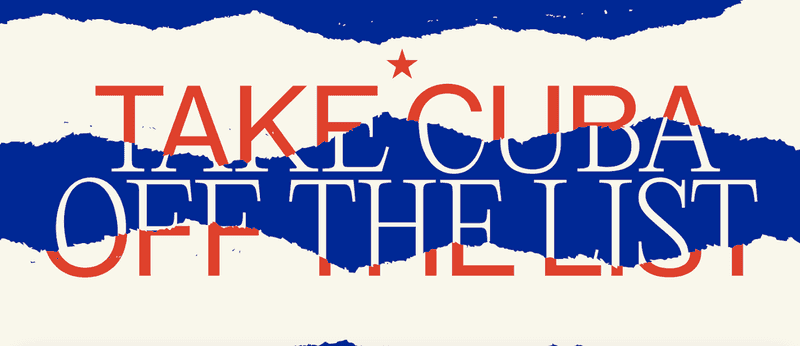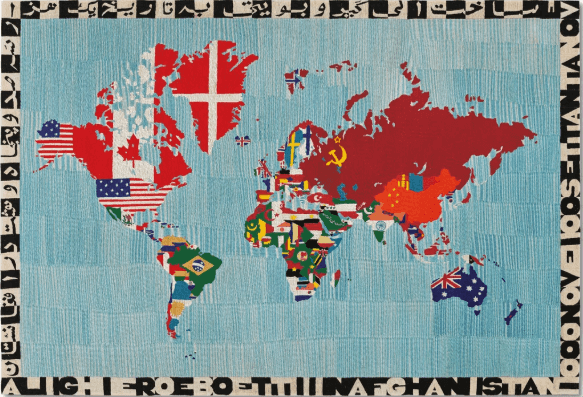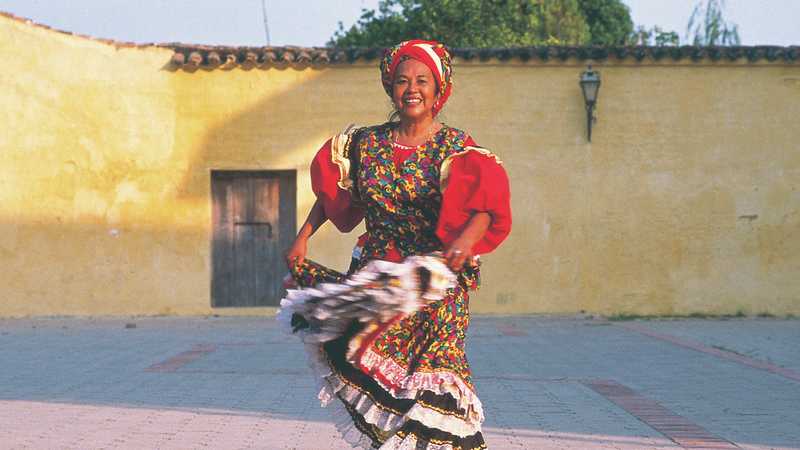
Take Cuba off the list. That’s the call from nearly 600 parliamentarians from 73 countries today as they sign a joint letter, coordinated and published by the Progressive International, condemning Cuba’s designation by the United States as a “state-sponsor of terrorism.”
The global coalition of legislators write that the designation is “cynical, cruel, and a clear violation of international law”. They call on their respective governments to “take immediate action to advocate for [the designation’s] removal.”
The US state-sponsor of terrorism designation, removed in 2015 following a thorough evaluation by the Obama Administration, was reapplied to Cuba on the very last days of the Trump presidency in 2021. Countries on the US list face extreme sanctions which hinder access to medicines and foods. The three other countries with the designation by the US government are Syria, since 1979, Iran, since 1984 and North Korea, since 2017. President Joe Biden has not removed the designation, despite promising a return to the Obama-era policy.
The signatories demand the urgent removal of “Cuba from the list of “state-sponsors of terrorism” (SSOT) in the name of dignity, decency, and the integrity of the UN Charter.” They note that according to United Nations experts, the designation has undermined “[f]undamental human rights, including the right to food, right to health, right to education, economic and social rights, right to life and right to development”.
Particularly notable signatories include: former president of the Belgian Workers Party Peter Mertens, Brazilian Deputy Célia Xakriabá, Canadian MP and PI Council Member Niki Ashton, Colombian Senator and PI Council Member Clara López Obregón, former general secretary of Cyprus' Progressive Party of Working People (AKEL) Andros Kyprianou, Ecuadorian Deputy Jahiren Noriega, French Deputy Arnaud Le Gall, leader of German party Die Linke Martin Schirdewan, Ghanaian MP Samuel Okudzeto Ablakwa, general secretary of the Community Party of Greece (KKE) Dimitris Koutsoumpas, former president of Guyana Donald Ramotar, First Vice President of the National Congress of Honduras Hugo Noé Pino, Indian MP John Brittas, leader of Jamaica’s People’s National Party Mark Golding, Malaysian MP Wong Chen, general secretary of Mexican party Morena Citlalli Hernández, Senegalese Deputy Guy Marius Sagna, leader of Serbia’s Movement of Socialists Bojan Torbica, leader of the Seychelles opposition Sebastian Pillay, Spanish Deputy and PI Council Member Gerardo Pisarello, leader of Spanish party Podemos Ione Belarra, leader of Sri Lanka’s National Freedom Front Wimal Weerawansa, President of Turkey’s Peoples’ Democratic Party and PI Council Member Ertuğrul Kürkcü, former leader of the UK Labour Party and PI Council Member Jeremy Corbyn.
The full list of signatories and the letter are published here.
The signatories argue that the designation “is cruel because it is designed to maximize the suffering of the people of Cuba, strangling its economy, displacing its families, and even restricting the flow of humanitarian aid.”
In May 2024, the US State Department finally removed Cuba from the list of states “not fully cooperating” with the United States on counterterrorism efforts. However, the letter argues that “this is not enough” as “Cuba continues to suffer as a result of its cynical, cruel, and illegal exclusion from the international economy.”
The Progressive International-coordinated letter follows 35 former Heads of State and Government writing to Joe Biden asking him to remove Cuba from the list as he enters his final months in office.
Please share the news and join the call to take Cuba off the list.
Latest from the Movement
Join the team
The Progressive International is seeking an organiser to support workers in campaigning for Palestine. The role would respond to worker requests for help with organising, supporting them to develop a campaign strategy that pressures their company to take action around Palestine. If this sounds like it could be you or someone you know, click here for more information and how to apply.
Israel’s assault on Lebanon
“We did in Beirut exactly what [the Israelis] are doing in Gaza,” recalled one former Israeli soldier earlier this year. “We turned off the water, the electricity, everything. But there was no social media so people didn’t know so much.” He was referring to Israel’s 6 June 1982 invasion of Lebanon.
Codenamed ‘Operation Peace For Galilee’, the invasion culminated in the Sabra and Shatila massacre. Thousands of Palestinians were butchered by Israel’s Lebanese Phalangist militia allies and the massacre was labelled an “act of genocide” by the United Nations General Assembly.
42 years later, the echoes are startling and brutal. This past week, Israel has sought to escalate the regional war in West Asia. It has unleashed heavy airstrikes on Lebanon, with fighter jets conducting a mock air raid over Beirut, producing sonic booms, and coordinated terror attacks of exploding pagers. Scores are dead, including children, and thousands wounded.
Honduras hosts coffee summit
The government of Honduras, as the pro tempore presidency of the Community of Latin American and Caribbean States (CELAC) convened the region’s first coffee summit this week in Tegucigalpa. The meeting of agriculture ministers and other officials aims to strengthen the bargaining power and industrial capacities of primary commodity producers across Latin America, the Caribbean and the wider Global South.
Amazon drivers in New York form a union
Hundreds of Amazon drivers at a facility in Queens, New York, USA have formed a union with the Teamsters. The workers are now demanding the company recognise their union and begin bargaining for a contract.
Art of the Week: Campaign image by PI Art Director Gabriel Silveira.



